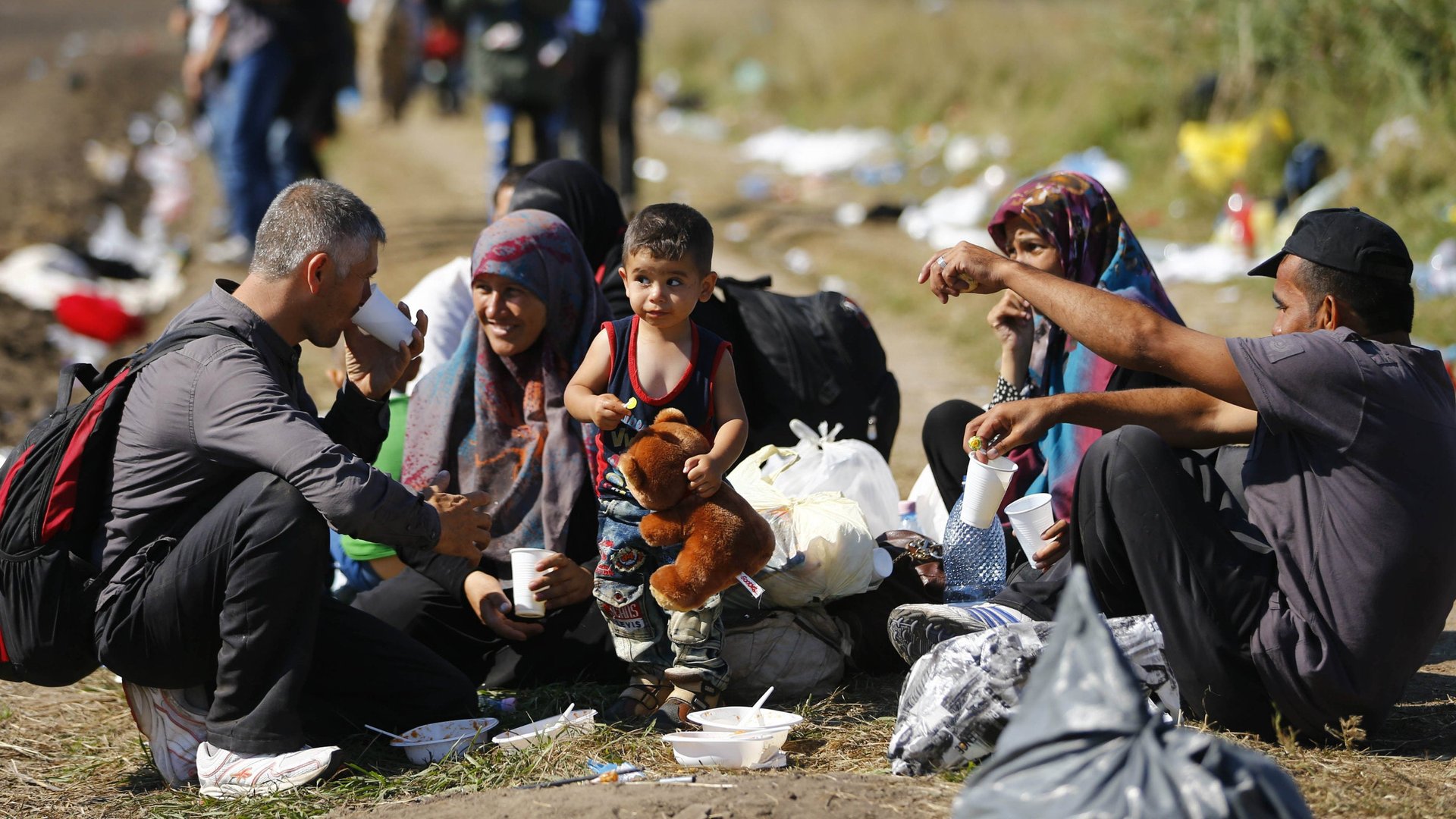The EU wants to set “mandatory” quotas to resettle 160,000 refugees, with penalties if countries refuse
The EU announced plans today (Sep. 9) that could force member states to resettle 160,000 refugees currently stuck in Greece, Italy, and Hungary.


The EU announced plans today (Sep. 9) that could force member states to resettle 160,000 refugees currently stuck in Greece, Italy, and Hungary.
In his State of the Union speech, European Commission President Jean-Claude Juncker told members of the European Parliament that they live on a “continent where nearly everyone has at one time been a refugee.” It was the preamble for the announcement of an emergency relocation plan for 120,000 refugees, building on a similar initiative announced in May to relocate 40,000. EU leaders will debate the proposal at a special meeting next week.
Refugees will be redistributed under a formula that considers a country’s population, GDP, unemployment rate, and the average number of asylum applications it has processed in the past. Denmark, Ireland, and the UK have the right to opt-out of the plan, while Greece, Hungary, and Italy are exempt given their status as the frontline for the influx of migrants.
For the rest of the EU, if a country refuses to participate, it must pay a 0.002% of its GDP into the bloc’s common budget, “to finance the efforts undertaken by all other EU countries to cope with the crisis situation,” the commission says. The EU itself will devote €780 million ($870 million) from its budget to pay for the plan.
This is how many refugees each participating member state will have to take, and from where:
Currently, the only refugees who will qualify for relocation under the emergency plan are those from Syria, Iraq, and Eritrea. Last quarter, more than 75% of refugees from these countries had their asylum applications accepted by EU member states, which has been set as the cut-off point for automatic resettlement.
This will not go down well among the Afghans, Somalis, Kosovars and other migrants that have come to the EU in large numbers recently and risk having their asylum claims rejected. In fact, as part of the plan announced today, the commission proposed an EU-wide agreement on “safe countries” from which asylum seekers can be fast-tracked for “swifter returns” if their applications are not extraordinarily convincing. These countries are Albania, Bosnia and Herzegovina, Kosovo, Macedonia, Montenegro, Serbia, and Turkey; together, they account for around 17% of all EU asylum applications.
The initial response to Juncker’s plan was predictably mixed. Nigel Farage, leader of Britain’s anti-immigration party UKIP, openly heckled Juncker’s speech in parliament. At the same time, fellow parliamentarians from the other side of the political spectrum called for more radical action to assist refugees:
Juncker said that he was “strongly in favor of allowing asylum seekers to work and earn their own money” while their applications were processed. Currently, most European countries prevent asylum seekers from taking jobs while their application are under review.
Some German officials think that their country can take up to 500,000 refugees every year, provided that the refugees are integrated into society. According to the Financial Times (paywall), chancellor Angela Merkel has prioritized German language classes and early access to jobs so that newly arrived refugees “bring more opportunities than risks.”